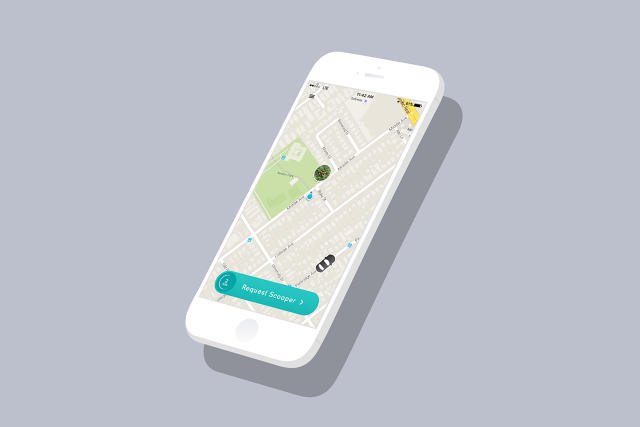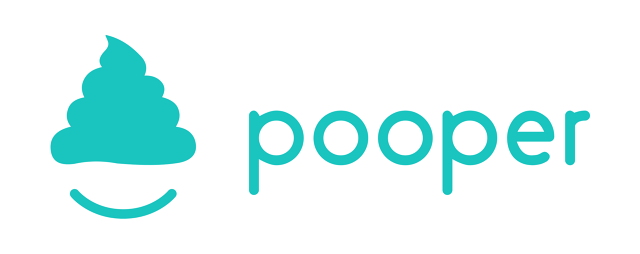Fake App "Uber For Dog Poop"

Last week news of a new "Uber for dog poop" app called Pooper spread across the web. The app’s website, complete with a professional-looking promo video, promises on-demand pickup of your furball’s excrement for a small monthly fee. All you would have to do, the website claimed, is snap a photo of Fido’s filthy business and someone in a Prius would come by and collect it for you.
"We’re never going to release this app. We’re not going to contribute to the downfall of society."
It sounded like Silicon Valley had finally gone (arguably even more) off the rails. It sounded totally unnecessary and possibly a little illegal. It sounded fake—that's because it was.

Despite appearances in the Washington Post, The Next Web, The Daily Dot, and several radio and talk shows, the app is actually an "art project" created by Ben Becker and Elliot Glass.
"Pooper is in fact a piece of art that is satirizing our app-obsessed world. Specifically, the increasing reliance on the gig-based economy to do stuff for us that we could easily do for ourselves," says Becker.
Becker works as a creative director in advertising, and Glass runs a boutique creative studio in Los Angeles that does freelance video production, branding, and web development. The duo built the website and produced the company’s promo video on their own, enlisting the help of friends Evan Koga and Louis Stephens at Pacific Sound House to help with a custom soundtrack for the video, something Becker says he thinks helped contribute to the whole aesthetic of the ruse.
"Part of our goal was to create as convincing a world around the product as possible," says Glass. "So that meant not just building a website, but crafting a branding package and designing a UI that was all kind of within this aesthetic that would feel believable in the current Silicon Valley."
The video was intentionally lighthearted, because the creators figured that if someone was actually launching a poop-scooping business they would likely do their best to embrace the levity of their product’s function as well.
"We wanted to keep the humor dialed in enough that it didn’t immediately feel like a joke when you saw it,’ says Glass. "Viewers were really unsure after watching this if it was real or fake."
"Viewers were really unsure after watching this if it was real or fake."
The duo borrowed language from other sharing economy videos and services for the website and video, loading it will buzzwords and visuals that made it look on par with other real services out there. Becker conducted press interviews using those words, to make himself sound more like a "tech bro."
"The fact that people were so willing to embrace that this could be something that could make their lives easier was a little bit terrifying," says Glass. "We had hundreds and hundreds of people sign up for our email lists," he says.
Users could sign up for the emails as either scoopers or poopers (the lazy dog owners snapping pics of their dogs' poop)—and the signups revealed to the fake app's creators just how dire life is for many people in our country. "About 70% were for scooper positions, which was kind of surprising to us, considering it is maybe the most demeaning job ever," Glass says.

Over the past several days the two pranksters say they’ve gotten between 30,000-40,000 hits on their website. In addition to collecting sign-ups to become scoopers and poopers, the creators also were approached by a number of investors looking to get in "on the ground floor" of the app, as well as a few companies that wanted to partner with them.
"It was so hard to not write email responses back to people saying ‘Are you serious?!,'" says Becker. "The fact that anyone would hit us up is weird."
"We didn’t make it easy to contact us. We don’t have an office or a phone number you can call us up on. It took a little bit of work for these people to even do that," says Glass.
Pooper is the first project in a larger series of projects Becker and Glass plan to make.

"All the things that we release aren’t going to be very obvious. We’re going to continue to put content out there that makes people question what they’re reading in the news, what they’re looking at online, and on a deeper level, what their relationship is to technology," says Becker."I think that’s a healthy dialogue. People should be thinking about it and questioning what roles apps and the gig economy play in their lives."
"People should be thinking about it and questioning what roles apps and the gig economy play in their lives."
One thing they’re not going to do: actually make Pooper.
"We’re never going to release this app," says Becker. "We’re not going to contribute to the downfall of society."
The two see the general acceptance of the app and its premise as a litmus test of sorts of where we are as a society as a whole.
"We’re not going to contribute to the downfall of society."
Lol
that led to the particular society's downfall